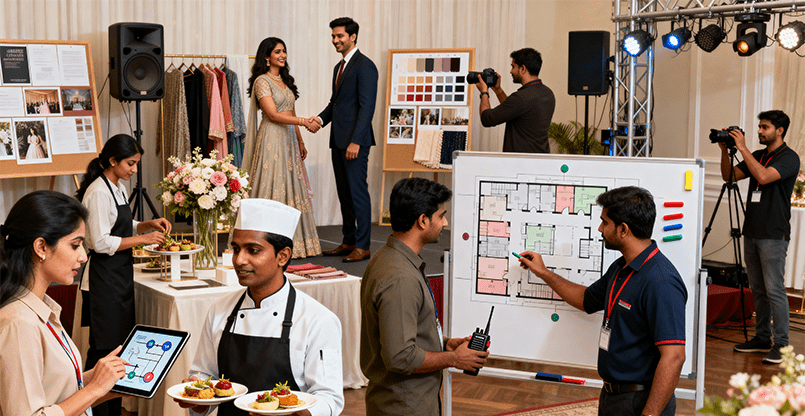
How can effective communication between event planners and clients enhance overall event planning success?
In the world of event planning, clear and effective communication between event planners and clients can make all the difference between a smooth, memorable event and a stressful, chaotic experience. When planners and clients collaborate seamlessly, expectations are aligned, tasks are executed efficiently, and the event runs flawlessly. Effective communication strategies for event planners are not just about exchanging information; they are about understanding the vision, preferences, and goals of the client to deliver an unforgettable experience.
Why Communication Matters in Event Planning
Communication serves as the backbone of every successful event. Misunderstandings or lack of clarity can lead to missed deadlines, budget overruns, and dissatisfaction for both clients and planners. When planners take the time to clarify every detail and maintain open channels with clients, it ensures that everyone is on the same page. This proactive approach reduces the risk of last-minute surprises and creates an environment where ideas and feedback flow freely, allowing the event to unfold exactly as envisioned.
Benefits of Effective Planner-Client Communication
The benefits of good planner-client communication extend far beyond preventing errors. When communication is strong, planners can understand client expectations more precisely, manage timelines efficiently, and foster a collaborative atmosphere. This alignment enables creative ideas to flourish, ensuring that the event is not only well-organized but also unique and reflective of the client’s personality and vision. Enhancing event success through client collaboration ensures that each detail, from venue selection to decor and entertainment, aligns perfectly with the overall plan, leaving a lasting impression on attendees.
Best Practices for Planner-Client Communication
When effective communication is prioritized, the result is a seamless event experience that exceeds expectations. Case examples from weddings, corporate events, and social gatherings illustrate how clear dialogue between planners and clients creates synergy. This alignment ensures that the event reflects the client’s vision while allowing planners to apply their expertise effectively. A well-communicated plan reduces last-minute stress, enhances creativity, and ensures that every element, from catering to entertainment, is perfectly coordinated. Ultimately, prioritizing planner-client communication transforms an ordinary event into a truly memorable occasion.
How Communication Enhances Event Success

When effective communication is prioritized, the result is a seamless event experience that exceeds expectations. Case examples from weddings, corporate events, and social gatherings illustrate how clear dialogue between planners and clients creates synergy. This alignment ensures that the event reflects the client’s vision while allowing planners to apply their expertise effectively. A well-communicated plan reduces last-minute stress, enhances creativity, and ensures that every element, from catering to entertainment, is perfectly coordinated. Ultimately, prioritizing planner-client communication transforms an ordinary event into a truly memorable occasion.
Conclusion
Effective communication between event planners and clients is the cornerstone of successful events. By embracing best practices, maintaining transparency, and fostering collaboration, both planners and clients can ensure that each detail of an event is executed flawlessly. Whether you are planning a wedding, corporate event, or social gathering, prioritizing communication will lead to memorable experiences and smoother execution. To experience this level of professional and seamless event planning, explore the services of Memories Unlimited, where every event is crafted with precision, creativity, and a focus on client satisfaction.
FAQs
1. What is the role of communication in event planning?
Communication ensures that every detail, expectation, and goal is understood by both planners and clients, reducing errors and stress.
2. How often should event planners communicate with clients?
Frequent and consistent updates are recommended throughout the planning process, using meetings, calls, and collaborative tools.
3. Can poor communication affect the event outcome?
Yes, miscommunication can lead to missed deadlines, budget issues, and a final event that does not meet client expectations.
4. What tools help improve client-planner collaboration?
Tools like Trello, Asana, shared calendars, and video calls can streamline communication, maintain transparency, and track progress efficiently.
